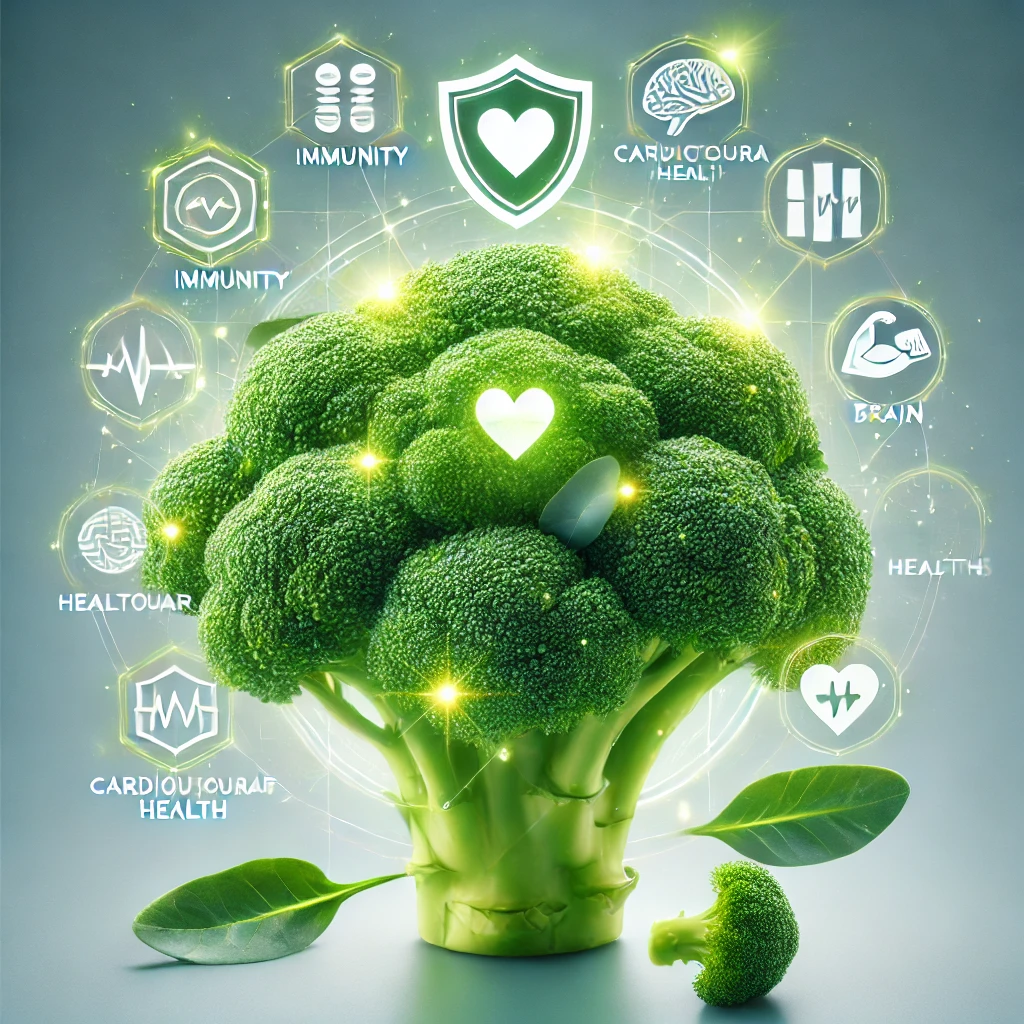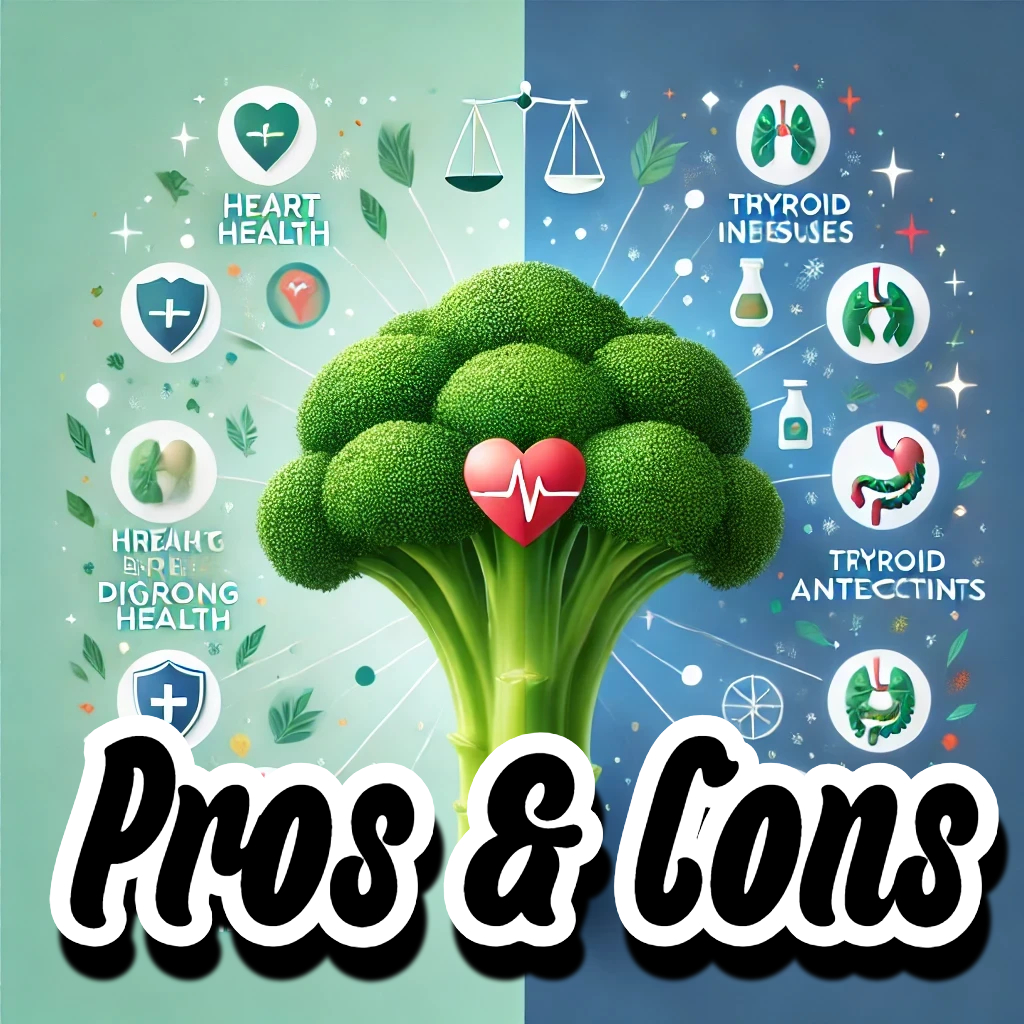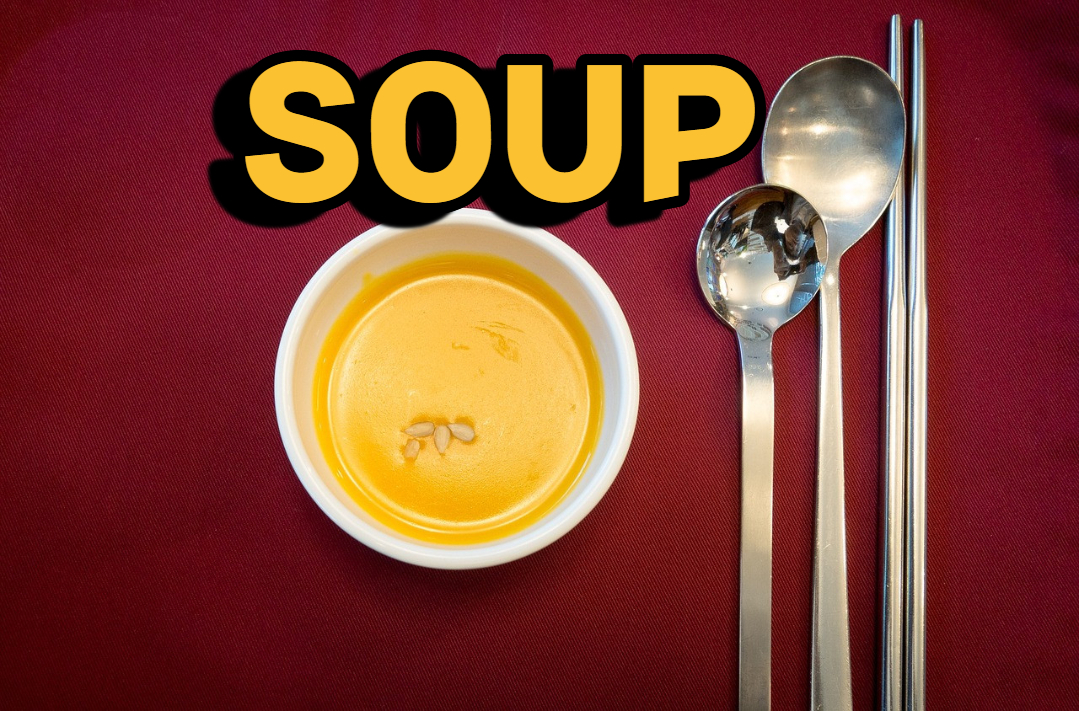Broccoli is often hailed as one of the healthiest vegetables on the planet. This nutrient-dense, green powerhouse has earned its place in kitchens and diets worldwide. Whether you’re looking for health benefits, weight management, or even simple and tasty broccoli recipes, broccoli has you covered. In this blog, we’ll dive into the impressive benefits of broccoli, including why it’s good for both males and females, its protein content, and its overall contribution to a balanced diet.
Broccoli: A Nutritional Powerhouse
Broccoli belongs to the Brassicaceae family, also known as the cabbage family, which includes cauliflower, Brussels sprouts, and kale. Its origins date back to ancient Roman times, which might make you wonder, who invented broccoli? While no single person can be credited with inventing broccoli, it was cultivated from wild cabbage in the Mediterranean region and has been a staple in diets for thousands of years.
The broccoli family name encompasses a group of cruciferous vegetables known for their high nutrient content, cancer-fighting properties, and health benefits. But broccoli stands out for several reasons, making it a key player in the world of superfoods.
Key Broccoli Benefits
1. Packed with Essential Nutrients
Broccoli is loaded with essential vitamins and minerals that are crucial for maintaining good health. A single serving of broccoli contains:
- Vitamin C: Helps boost the immune system and fight off infections.
- Vitamin K: Plays a key role in blood clotting and bone health.
- Fiber: Promotes healthy digestion and keeps you feeling full.
- Folate: Important for cell growth and metabolism.
This makes broccoli an excellent vegetable to include in your meals regularly. Whether you’re preparing a light salad or incorporating it into a more complex dish, there are countless broccoli recipes that can help you enjoy its benefits.
2. Rich in Antioxidants
One of the most important broccoli benefits is its high antioxidant content. Broccoli is particularly rich in sulforaphane, a compound known for its cancer-fighting properties. This antioxidant helps neutralize harmful free radicals in the body, which can reduce oxidative stress and inflammation. Consuming broccoli regularly has been linked to a lower risk of cancers such as breast, prostate, and colon cancer.
3. Supports Heart Health
Broccoli plays a major role in maintaining heart health. The vegetable contains potassium and fiber, both of which help reduce cholesterol levels and regulate blood pressure. These properties can help reduce the risk of cardiovascular diseases, making broccoli a heart-healthy choice.
4. Great for Weight Management
If you’re looking to manage your weight, broccoli is an excellent choice. It’s low in calories but high in fiber, which makes it perfect for helping you feel full without overeating. Incorporating broccoli into your meals can curb your appetite and support healthy weight loss. Many people enjoy using broccoli as a base for low-calorie, nutrient-dense meals, thanks to its versatility in cooking.
5. Broccoli Benefits for Females
Broccoli offers some unique benefits for women, particularly when it comes to bone health. Broccoli is rich in calcium and vitamin K, both of which are essential for maintaining strong bones and preventing osteoporosis, especially in post-menopausal women. Additionally, broccoli is rich in folate, which is important for women during pregnancy as it supports fetal development.
6. Broccoli Benefits for Males
For men, broccoli offers several key health advantages. One of the most important broccoli benefits for males is its role in prostate health. The sulforaphane in broccoli has been shown to reduce the risk of prostate cancer, one of the most common cancers in men. Additionally, broccoli supports overall cardiovascular health, which is critical for men as they age, given their higher risk for heart disease.
7. Promotes Healthy Digestion
Broccoli is high in dietary fiber, which is essential for maintaining a healthy digestive system. Eating fiber-rich foods like broccoli promotes regular bowel movements and prevents constipation. It also helps feed beneficial bacteria in the gut, which can improve overall gut health and digestion.
8. Supports Detoxification
Broccoli contains compounds like glucoraphanin, gluconasturtiin, and glucobrassicin, which help the body detoxify itself. These compounds support liver function and assist in eliminating toxins, promoting overall health.
Broccoli Protein: A Surprising Plant-Based Source

When we think of protein, we typically think of animal products like meat or eggs. However, broccoli offers a decent amount of protein for a vegetable. With 2.5 grams of protein per cup, broccoli is a great addition to plant-based diets. This makes it an especially good choice for vegetarians and vegans who are looking for diverse sources of plant-based protein.
Though broccoli protein content may not be as high as in meat, combining it with other plant-based proteins, like quinoa or lentils, can create a complete and protein-rich meal.
How to Pronounce Broccoli?
If you’re wondering about broccoli pronunciation, it’s quite straightforward: “brok-uh-lee.” This is how it’s most commonly said in English-speaking countries, though variations may exist depending on accents or languages.
Broccoli’s Role in Disease Prevention
Broccoli’s unique composition makes it a powerful tool in the prevention of various diseases. Here are a few ways broccoli supports long-term health:
1. Cancer Prevention
Broccoli is often studied for its role in cancer prevention. Its high levels of sulforaphane and other antioxidants help neutralize harmful substances in the body and may reduce the risk of various cancers. Studies have shown that regularly consuming cruciferous vegetables, particularly broccoli, can reduce the risk of lung, stomach, and breast cancers.
2. Diabetes Management
Broccoli may also help regulate blood sugar levels, making it beneficial for those with diabetes or those at risk. The fiber content helps slow down the absorption of sugar, preventing blood sugar spikes.
3. Eye Health
Broccoli is rich in vitamin A and antioxidants, which contribute to better eye health. Regular consumption of broccoli can help protect the eyes from age-related conditions like cataracts and macular degeneration.
Easy Broccoli Recipes to Try
Incorporating broccoli into your daily meals doesn’t have to be difficult. Whether you’re a seasoned cook or a beginner in the kitchen, there are plenty of delicious and simple broccoli recipes you can try. Here are a few ideas:
- Roasted Broccoli with Garlic: Toss broccoli florets with olive oil, garlic, and a sprinkle of salt, then roast in the oven until crispy. This is a quick and easy side dish that pairs well with almost any meal.
- Broccoli Soup: Blended broccoli with a little vegetable broth, onions, and garlic makes for a creamy, healthy soup that’s perfect for lunch or dinner.
- Broccoli Stir-Fry: Toss broccoli with your favorite protein (like tofu or chicken), along with some soy sauce, garlic, and ginger, for a quick and nutritious meal.
- Broccoli Salad: Combine steamed broccoli with almonds, cranberries, and a light vinaigrette for a crunchy, healthy salad.
Conclusion: The Many Benefits of Broccoli
In summary, broccoli is a versatile, nutrient-dense vegetable that offers a wide array of health benefits for everyone. From promoting heart health and cancer prevention to aiding in weight management and supporting digestion, broccoli deserves a place in your diet. Whether you’re looking for broccoli benefits for females, broccoli benefits for males, or simply want a good source of plant-based protein, this superfood delivers on all fronts.
Incorporate broccoli into your meals by experimenting with different broccoli recipes, and enjoy the wealth of health benefits that come with this green vegetable. From its cancer-fighting properties to its ability to promote strong bones and a healthy heart, broccoli proves time and again why it’s considered a nutritional powerhouse.
So, what are you waiting for? Add more broccoli to your diet and reap the incredible benefits of this superfood!
FAQs
1. How do I pronounce broccoli?
Broccoli pronunciation is simple: “brok-uh-lee.”
2. Who invented broccoli?
Broccoli was selectively bred from wild cabbage in the Mediterranean region and has been cultivated for thousands of years, dating back to Roman times.
3. Does broccoli contain protein?
Yes, broccoli is a surprisingly good source of plant-based protein, providing about 2.5 grams of protein per cup.
4. What are some easy broccoli recipes?
You can try roasted broccoli with garlic, broccoli soup, or a broccoli stir-fry for quick and delicious meals.
5. Is broccoli good for weight loss?
Absolutely! Broccoli is low in calories but high in fiber, which makes it great for promoting fullness and aiding in weight management.


